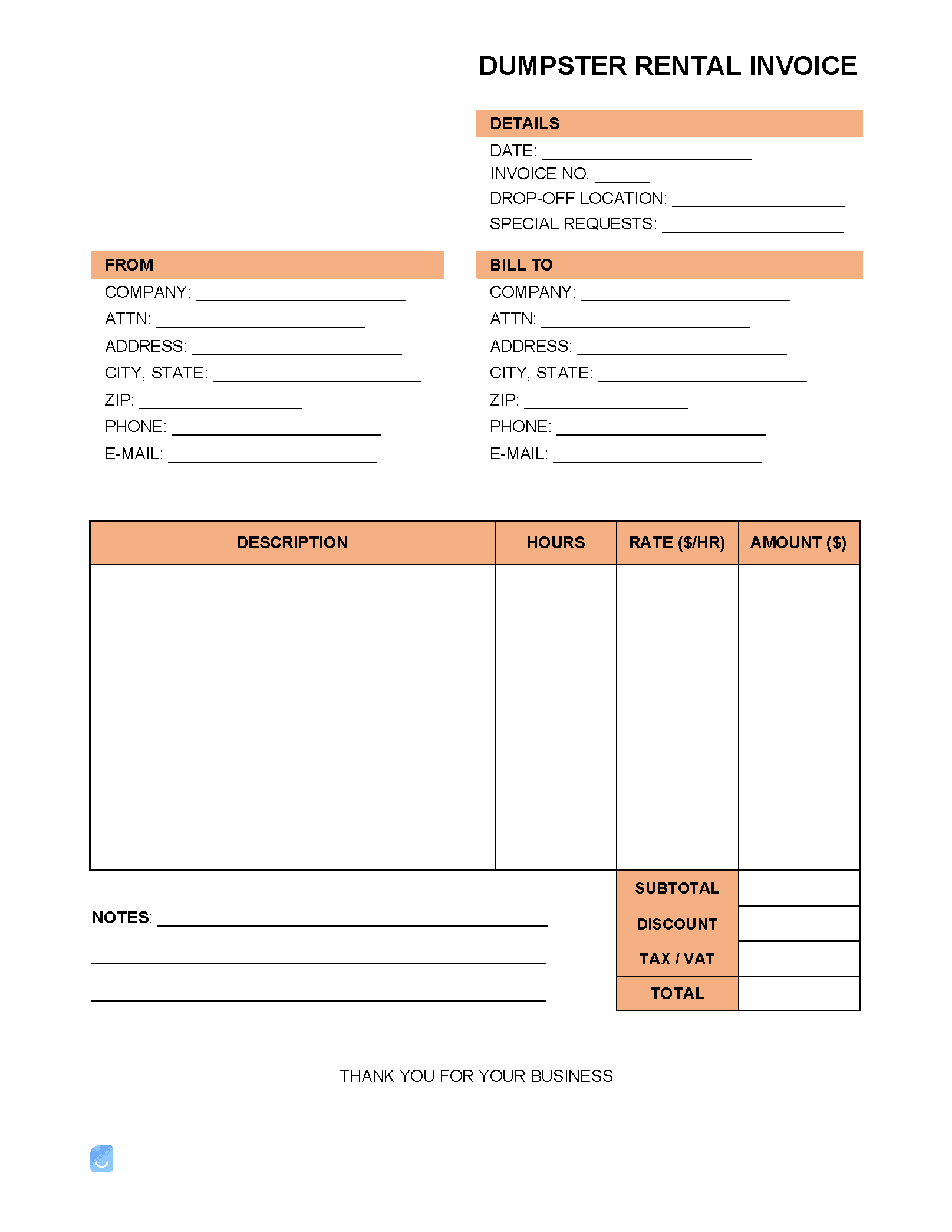Dumpster Rental Invoice Template
A dumpster rental invoice is an official bill issued by waste management companies to individuals who rent a dumpster for a length of time ranging from one (1) to ten (10) or more days. Dumpster rental companies can offer their customers the option of paying the total due amount upon receiving the invoice, or after a length of time of their choosing, with a common term being twenty-one (21) days.
Average Dumpster Rental Costs
Dumpster rental businesses typically stock a large inventory of different dumpster sizes to account for the varying needs of customers. The most commonly rented out dumpsters are those that are called “roll-off” dumpsters. These are exceptionally large metal trash containers with industrial wheels to roll off the specialty-designed trucks that carry them. Common in situations where a considerable amount of debris will need to be disposed of, the dumpsters can often be ordered in a range of sizes and dimensions.
Dumpster Cost Factors
The rates that waste management companies charge for the rental of a commercial dumpster depend on five (5) major factors, with some weighing more heavily than others. They are:
- Dumpster Size – The size of the industrial container is the most influential price factor, as larger sizes typically entail an increase in the weight of debris, requiring more effort on behalf of the rental company to empty the dumpsters.
- Rental Term – Companies typically offer rentals for periods of days to weeks. The exact amount of time is often negotiated between the business and the customer.
- Debris / Trash Type – For certain materials, companies may need to dump the trash in a landfill, recycle it themselves, or another more labor-intensive disposal method.
- Dumpster Drop-off Location – Further distances and difficult-to-reach spots may accompany an increased drop-off fee or rate.
- Permits – In most cities and towns, a permit (and associated fee) is required to place a dumpster.
What Cannot Be Put in a Dumpster?
The types of materials and debris that can’t be thrown into rented dumpsters vary heavily on the municipality in which the dumpster is rented, the type of dumpster, or if the material is required to be disposed of in a special way. Some of the most commonly restricted dumpster items are the following:
- Mattresses & Box Springs
- Batteries
- Wood (often requires special dumping procedures/areas)
- Motor Oil (requires special drop-off)
- Household Garbage (should be thrown away in normal garbage)
- Flammable equipment/materials (propane tanks, certain adhesives, gasoline, etc.)
- Shingles
- Remodeling materials (sheetrock, glass, carpet, etc.)
- Railroad ties
- Materials that could be contaminated with viruses or pathogens
